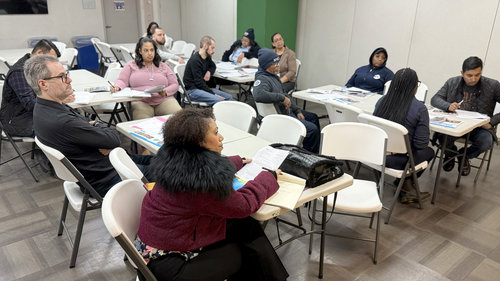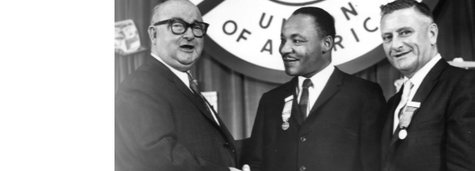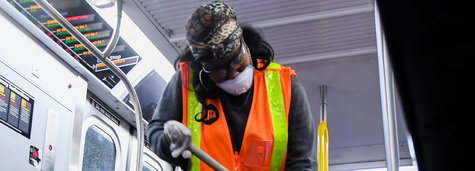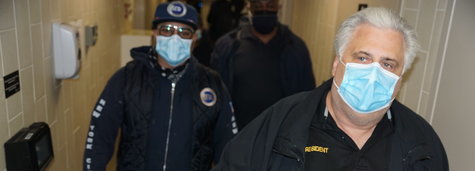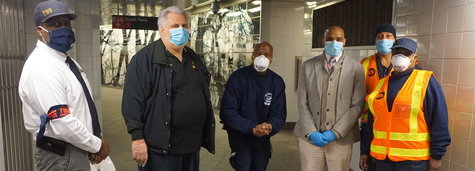Former CTAs Become Station Agents Through Direct Promotional Pathway
Kelley knows the plight of a CTA worker; he is the first CTA in the union's history to be a Vice President of the Stations Department. Paving the way for additional firsts in his department, he negotiated the HR agreement for the MTA and Department of Citywide Administration Services (DCAS) to qualify CTAs to be promoted to Station Agents.
Based on his experience, Kelley recognized that CTAs frequently interacted with commuters due to their extensive knowledge of transit systems. By including "customer service" experience in CTA's job descriptions, he negotiated for CTAs to be considered first for open Station Agent roles.
"TWU Local 100's initiatives to improve the promotional pathway from CTA to Station Agent are commendable because they focus on fairness and opportunity for all workers. The initiative helps hardworking CTAs move into higher-paying, more stable roles that can lead to other roles," said Nikolle McCord, with 23 years of experience as a CTA.
In addition to the changes to the revised HR agreement, when the CTAs pass the Station Agent test, DCAS calls the CTA for an interview that leads to their promotion. The newly promoted Station Agent and the MTA have a one-year probationary period to determine if the role is a proper fit. If not, they can return to their previous CTA title.
Every promotion brings a salary increase. Under the previous agreement, promoted CTAs received the same first-year rate as external candidates. In the new agreement, years of service as a CTA now factor into the salary increase.
"I needed a change. I have had a broom in my hand since 2006. I didn't want to go into 2026 with the same title," said Carmen Media, a CTA for 17 years. "The biggest aspect of my promotion is having a fresh start. I feel very proud to help our everyday commuters."
